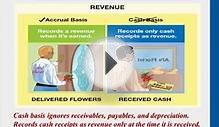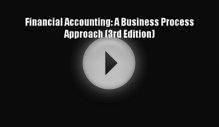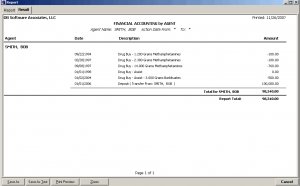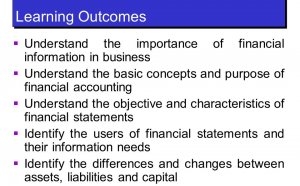
Process of Financial Accounting
 As implied earlier, today's electronic accounting systems tend to obscure the traditional forms of the accounting cycle. Nevertheless, the same basic process that bookkeepers and accountants used to perform by hand are present in today's accounting software. Here are the steps in the accounting cycle:
As implied earlier, today's electronic accounting systems tend to obscure the traditional forms of the accounting cycle. Nevertheless, the same basic process that bookkeepers and accountants used to perform by hand are present in today's accounting software. Here are the steps in the accounting cycle:
(1) Identify the transaction from source documents, like purchase orders, loan agreements, invoices, etc.
(2) Record the transaction as a journal entry (see the Double-Entry Bookkeeping Section above).
(4) At the end of the reporting period (usually the end of the month), create a preliminary trial balance of all the accounts by (a) netting all the debits and credits in each account to calculate their balances and (b) totaling all the left-side (i.e, debit) balances and right-side (i.e., credit) balances. The two columns should be equal.
(6) Create an adjusted trial balance of the accounts. Once again, the left-side and right-side entries - i.e. debits and credits - must total to the same amount. (To learn more see.)
(7) Combine the sums in the various accounts and present them in financial statements created for both internal and external use.
(8) Close the books for the current month by recording the necessary reversing entries to start fresh in the new period (usually the next month).
YOU MIGHT ALSO LIKE


Share this Post
Related posts
Summary of Financial Accounting
Financial summaries can reveal the successes and failures of a business. The summaries gather data from accounting records…
Read MoreImportance of Financial Accounting in Business
Rigorous accounting requires time and effort, but your business won t remain viable without it. Jupiterimages/Comstock/Getty…
Read More










